Portal View Settings
You can set the following settings for appearance of portals:
- The default portal appears when users login to Garoon
- Users who can set up the default portal
- Portal Display Order
Setting up the Default Portal
Set the default portals appear when users login to Garoon for each department.
-
Click the administration menu icon (gear icon) in the header.
-
Click "System settings".
-
Select "Application settings" tab.
-
Click Portal.
-
Click "Default portal".
-
On the "Default portal setting" screen, select the department, and click "Save".
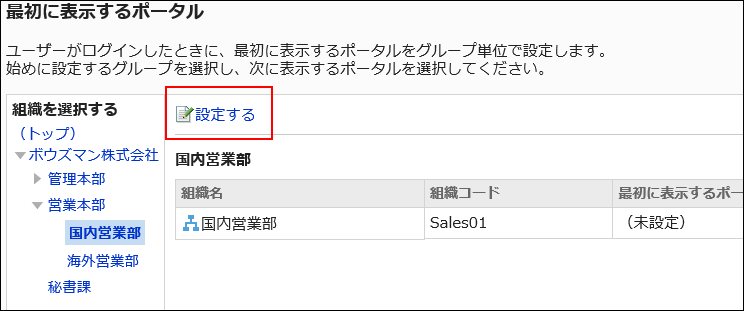 If you select "(Top)", the settings are applied to all departments. However, the settings for each department override.
If you select "(Top)", the settings are applied to all departments. However, the settings for each department override. -
Select the portal to show at first login, and then click "Save".
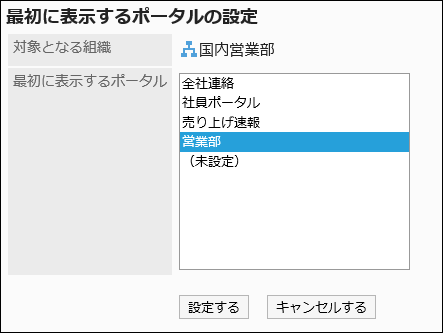 If you select "(Not set)", the portal that is set at the top of Portal display order is displayed first.
If you select "(Not set)", the portal that is set at the top of Portal display order is displayed first.
Setting Permissions for Default Portal Setting
You can set permissions for default portal setting based on organizations, users, and roles.
The permissions for default portal settings vary depending on the security model.
The default setting is set to "GRANT (Only users on list have access)". Therefore, all users are prohibited to use the settings.
For information on user rights, refer to User Rights and Prioritized Access Permissions.
Users who have been granted permissions can set their default portal on the personal settings.
Adding Permissions
The following steps explain how to set permissions if the security model is set as "GRANT (Only users on list have access)".
-
Click the Administration menu icon (gear icon) in the header.
-
Click "System settings".
-
Select "Application settings" tab.
-
Click Portal.
-
Click Permissions for default portal setting.
-
On "Permissions for default portal setting" screen, confirm that the security model is "GRANT (Only users on list have access)".
If the security model is set as "REVOKE (All users have access except users on list)", click "Change" to change the setting to "GRANT (Only users on list have access)". For details, refer to Changing the Security Model.
-
Click Add.
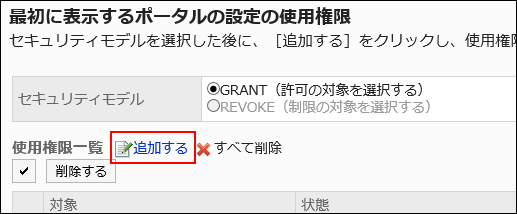
-
On the "Add Permissions" screen, select the department, user, or role to set permissions, and then click Add.
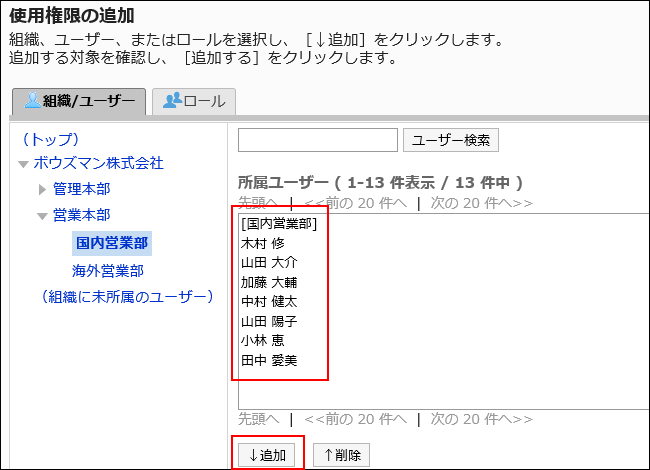 To select a role, switch the view to the Roles tab.
To select a role, switch the view to the Roles tab.
After you click "Add" then click the tab, the selected departments, users, or roles before you switch tabs are cleared. -
Click Add.

Deleting Permissions
Delete permissions granted to users or departments.
If you delete permissions, actions that users can perform changes as follows depending on the security model:
- If the security model is "GRANT (Only users on list have access)":
Users who were deleted the permissions or users who belonged to the departments or roles that lost permissions no longer be able to work with items they previously could. - If the security model is "REVOKE (All users have access except users on list)":
Users who were deleted the permissions or users who belonged to the departments or roles that lost permissions can now work with items they prohibited to use.
Selecting and Deleting Permissions
You can select permissions and delete them.
-
Click the Administration menu icon (gear icon) in the header.
-
Click "System settings".
-
Select "Application settings" tab.
-
Click Portal.
-
Click Permissions for default portal setting.
-
On "Permissions for default portal setting" screen, select the checkbox for the permissions to delete, and click Delete.
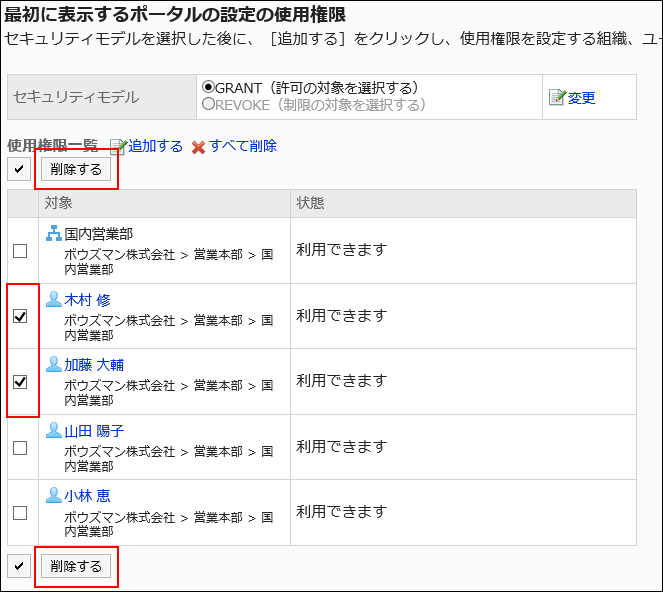
-
Click Yes on the "Delete all Permissions" screen.
Deleting All Permissions
You can delete all permissions.
-
Click the Administration menu icon (gear icon) in the header.
-
Click "System settings".
-
Select "Application settings" tab.
-
Click Portal.
-
Click Permissions for default portal setting.
-
On "Permissions for default portal setting" screen, click "Delete all".
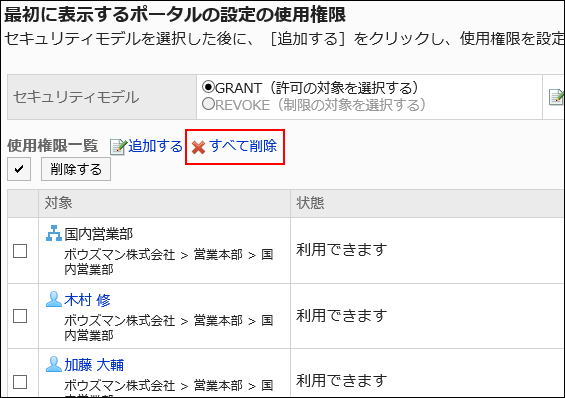
-
Click Yes on the "Delete all permissions" screen.
Reordering Portals to Show
Change the order in which the tabs appear on users ' screens.
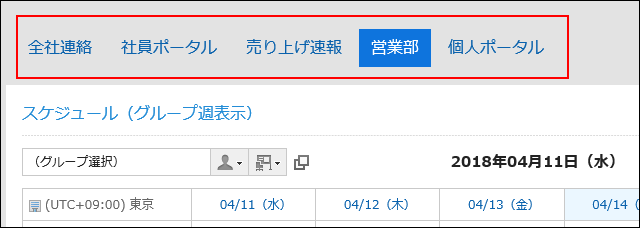
-
Click the administration menu icon (gear icon) in the header.
-
Click "System settings".
-
Select "Application settings" tab.
-
Click Portal.
-
Click the item to reorder portals.
-
On the screen to reorder portals, you can change the order in which portals are displayed.
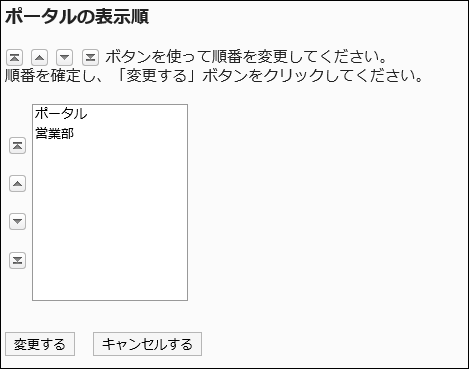
-
Confirm your settings and click Save.